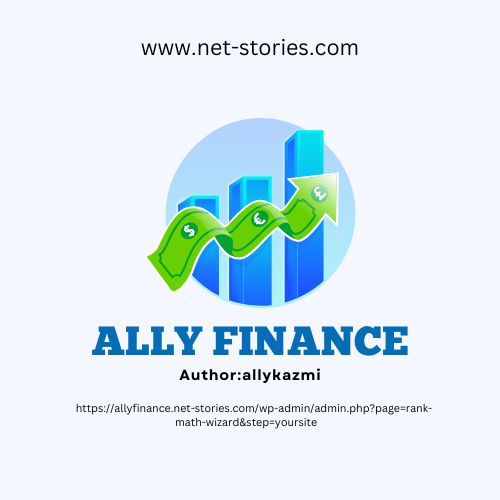Larger holders of foreign currency debt should use capital-flow management or macro-prudential regulations to smooth repayment profiles and minimise foreign exchange mismatches.

Changes in currency values can have a significant impact on economies, companies, and people’s personal fortunes in the fast-paced world of global economics. The US dollar’s (USD) strength is one of these deciding elements. Export-reliant nations may face difficulties from a strong USD, which can also raise import prices and have an impact on foreign investments. This blog will examine practical approaches that people and organisations can use to deal with the difficulties created by a strong USD without turning to pluralism.
1.Diversifying Revenue Streams:

Businesses can lessen the effects of a strong USD by diversifying their sources of income. Reducing reliance on markets where the USD’s strength is especially harmful can be accomplished by expanding into new markets or creating complementary products and services.
2.Hedging Currency Risks:

A layer of defence against exchange rate swings can be achieved by using currency hedging instruments. Businesses can protect themselves from any losses brought on by a strong USD by locking up exchange rates at advantageous levels.
3.Implementing Cost Management Measures:

Businesses should concentrate on efficient cost management measures in reaction to a strong USD. Contract renegotiations, cost-cutting measures, and operational efficiency enhancements can all be used to counteract the negative consequences of a strong currency.
4.Researching Market Demand:

It is essential to comprehend consumer demand and market trends in areas where a strong USD has an impact. Despite currency difficulties, businesses can modify their pricing and marketing methods to appeal to local customers and keep themselves competitive.
5.Investing in Productivity and Innovation:

Businesses can become more resistant to exchange rate swings by boosting productivity and encouraging innovation. Even in an economy with a strong USD, businesses can keep a competitive edge by consistently improving efficiency and providing innovative products.
6.Building Strategic Partnerships:

When coping with a strong USD, establishing strategic alliances with overseas competitors can be helpful. To overcome challenges caused by currency, cooperation can generate opportunities that are mutually advantageous, such as sharing resources or opening up new markets.
7.Monitoring Central Bank Policies:

People and businesses can prepare for currency swings by closely monitoring the monetary policies of important central banks, such as the US Federal Reserve. This information can help with planning and making decisions regarding the possible effects of a strong USD.
8.Educating Workforce and Stakeholders:

Employees and stakeholders must be informed about currency fluctuations in order to respond to a strong USD. Having a proactive and unified approach can be cultivated by making sure everyone is informed and aware of the repercussions.
9.Assessing Currency Exposure:

To estimate the danger they face from a strong dollar, both individuals and corporations should periodically evaluate their currency exposure. Developing the proper risk management techniques can benefit from an understanding of the potential impact on assets, liabilities, and cash flows.
10.Long-Term Perspective:

It’s essential to keep a long-term perspective while dealing with currency issues. The global economy naturally experiences brief oscillations, and overreacting to them can be detrimental. Instead, concentrate on long-term plans that take the bigger picture of the economy into account.
Conclusion:
Dealing with a strong USD necessitates a thoughtful and all-encompassing strategy. People and businesses can successfully ride the currency wave by diversifying their sources of income, using currency hedging, managing costs, and investing in productivity and innovation. Additionally, maintaining informed, forming strategic alliances, and encouraging a long-term outlook would help one respond more effectively to the problems brought on by a strong USD.
People Also Ask:
Ques: What happens if there is a strong U.S. dollar?
Ans: When the dollar appreciates against other currencies in the foreign exchange market, it is said to be strong. A stronger U.S. dollar makes it possible to purchase more foreign currencies than before. For instance, a strong dollar helps Americans who travel abroad since $1 can purchase more.
Ques: What happens when a country has a strong currency?
Ans: Imported items are less expensive and travelling abroad is simpler when your country’s currency is strong. As a result of having more extra money, you’ll probably be able to enjoy the vacation of your dreams.
Ques: Is a strong dollar bad for the world economy?
Ans: Foreign companies and persons who take out loans with U.S.-based lenders must pay higher interest rates due to the high value of the U.S. dollar. Furthermore, while a stronger dollar slows the pace of inflation in the United States, it accelerates inflation in a large portion of the rest of the world. As a result, the world economy is deteriorating.
Ques: Is it better for a country to have a strong or weak currency?
Ans: A country’s exports may benefit from a weak currency if its products are less expensive than those priced in stronger currencies. Sales growth might spur job creation and economic expansion while boosting profitability for businesses operating in international markets.
Ques: What is the strongest currency in the world?
Ans: Due to Kuwait’s stable economy, the Kuwaiti dinar is still the most expensive currency in the world. The nation possesses one of the greatest reserves in the world, therefore oil exports are the mainstay of its economy. Additionally, you should be aware that Kuwait does not charge its employees any taxes.
Author:allykazmi
